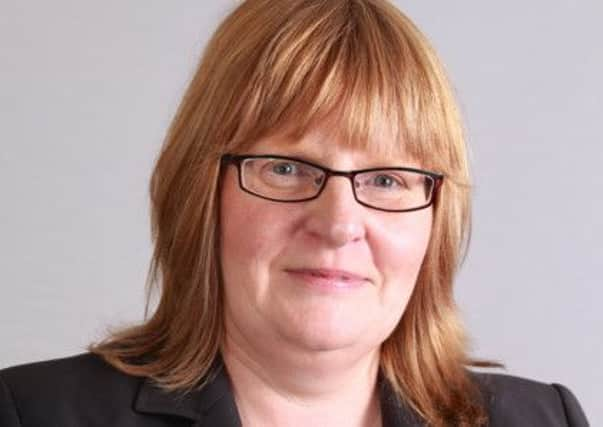Half of Yorkshire residents feel ‘uncomfortable’ talking to someone who is grieving


“Significant numbers” of bereaved people have experienced negative reactions to their grief, including people avoiding them, loss of friendship and lack of support, the report said.
The research has been released as part of a new Dying Matters campaign to support people with what to say and do after someone has been bereaved, including over the Christmas period.
Advertisement
Hide AdAdvertisement
Hide AdIt has been backed by Sheffield support group founder Kate Ibbeson, who experienced friends avoiding her when she lost both of her parents to cancer within the space of ten months.
She went on to found Sheffield Cancer Mafia, and now offers help to people who have been bereaved.
Ms Ibbeson said: “One of the things that hit me was that because a lot of my friends didn’t have a frame of reference for bereavement, they found it difficult to speak about.
“Whereas there was a lot of support around the funeral time, as soon as those were over, all of that support was gone.”
Advertisement
Hide AdAdvertisement
Hide AdMs Ibbeson has written a personal account of her first Christmas without her parents for the Dying Matters campaign blog, which tells of how many of her friends would not mention them for fear of upsetting her.
She added: “People worry about saying the right thing, but it’s actually more upsetting when they are not mentioned. Significant dates like birthdays and Christmases can be very difficult, no matter how long ago the bereavement was. It’s nice for somebody to say they are remembering the person you have lost.”
The study found almost a quarter of people questioned in Yorkshire said that they had not known what to say to a recently bereaved friend, and almost 40 per cent only talked about it if the other person mentioned it first.
Across the country the vast majority, 84 per cent, of those who have been bereaved in the past five years thought that people in Britain are uncomfortable talking to those who have recently been bereaved.
Advertisement
Hide AdAdvertisement
Hide AdOne in ten lost a friend because of how they reacted to them following their bereavement.
Claire Henry, chief executive of the National Council for Palliative Care, which leads the Dying Matters Coalition said: “Many people who have lost a loved one not only have to deal with the bereavement itself but also with the reaction of others. Although it can be difficult to know what to say or do for the best when someone has been bereaved, being there to talk, listen and provide support can make a real difference.
“We’re therefore calling on people across the country to show bereaved people they care, especially during the Christmas and New Year period as we know that it can be an especially difficult time if you have been bereaved.”
Debbie Kerslake, Chief Executive of Cruse Bereavement Care said the new campaign was “vital” to raise awareness of the difficulties bereaved people face.
Advertisement
Hide AdAdvertisement
Hide AdShe said: “The death of someone close can be devastating. But at a time when someone really needs the support of family, friends, neighbours and colleagues, too often it is lacking, not because people don’t care, but because they don’t know what to say or do.”
As part the campaign Dying Matters has produced a new leaflet with suggestions of things to say and do – and not say and do – when someone has been bereaved, all of which are based on bereaved people’s own experiences. It is available to download for free at www.dyingmatters.org